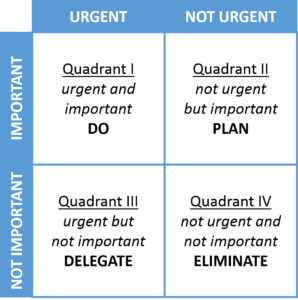Time Management Skills: The 3 New Lessons That Are Key To Getting Your Life Back
This article on time management skills may come as something of a surprise.
You won’t get the same advice that you get from every other “guru” on time management skills.
And you’ll either:
Love what you hear, and start using it straight away.
Or,
Discard this article, delete my number, and leave without so much as a kiss goodbye.
Because in this article, you’re going to learn the 3 new time management lessons.
These 3 lessons, will give you your life back.
Under one condition.
You USE THEM.
Because once you’ve finished the article, you’ll be able to laugh at your old-time worries.
IF, and it’s a big if, you follow this simple plan.
It’s simple.
And easy.
So easy in fact, it will only take you about 40 minutes to re-design and plan your life.
And improve your time management skills.
Once you’ve completed the plan after those 40-minutes, you’ll:
- Instantly feel free, like you’ve finally found the solution to your time problems.
- Have the tools and skills to be able to work effectively no matter what life throws at you.
- Learn the same things that helped Liz. She went from working evenings and weekends to having her time and life back. Now she spends her evenings being present and relaxing with her beautiful daughter.
- And much more.
But don’t take my word for it…
…just ask Liz.

Liz Talking About Her Time Management Skills
What happens when you develop time management skills?
There are a whole bunch of wonderful things that happen when you get some time management skills.
First of all, you’ll relax.
And that could be the biggest gift of them all.
Because when you relax, you perform.
And you’ll be a better person to be around.
The second thing that will happen when you work on your time management skills is growth.
You’ll find that being busy is holding you back.
All those excuses you’ve got for not growing and moving forward, aren’t hurting you as much as being busy.
When you have space to breathe, and think, you’ll grow.
It gives you the headspace to think, review and strategise.
And that’s the ONLY way to grow a business.
You can’t grow a business by doing more stuff.
A hairdresser never grew a business by cutting more hair.
It’s when she takes the time to work ON the business instead of in it that the magic happens.
If that hairdresser would put the bloody scissors down.
But while she’s busy cutting hair and running around putting out fires…
The final thing that starts to happen when you work on your time management skills is;
Your kids get their Mummy or Daddy back.
Your spouse gets their husband or wife back.
And you get your life back.
With that being said, let’s get down to business.

Time To Get Your Life Back
What’s the best place to start?
The best place to start is clarity.
What kind of mess have you gotten yourself into?
Measuring where you are now is the first step to take when improving your time management skills.
Before you can start making changes to how you spend your time, you need to know where you currently stand.
It will help you spot the areas where you need to improve and make better use of your time.
To measure where you currently spend your time, you can use a spreadsheet or a time-tracking app.
Or go old school and use something like this:
Or you could make that spreadsheet. It can be as simple as creating columns for the tasks you do and how much time you spend on them.
You can then use this information to calculate the amount of time you spend on each task. You’ll be able to identify any patterns or areas where you are spending too much time.
Or, you can use a time-tracking app that will track it for you.
That’s useful if you switch between tasks often and find it difficult to track your time with a pen and paper. There are loads of time-tracking apps available for free or at a low cost.
Some even come with extra features such as reports and analytics.
Things that can help you gain further insights into how you spend your time.
If you’re the kind of person that needs a personal trainer to stand at your side to get you in the gym.
And running on the treadmill instead of… standing still.
Once you’ve got clarity on what you’re doing on a day to day, you’ve taken the first step.
Now we can start being smarter with our time and develop a solid plan.
What should you do once you’ve monitored where you are spending your time?
Alrighty, now it’s time to talk about prioritising important tasks.
It’s the only way to go if you want to take your small business to the next level.
As a small business owner, it’s easy to get bogged down in urgent tasks.
Urgent tasks are things that demand your immediate attention.
When we say urgent, think about two things.
How loud are they screaming?
(If the answer is VERY, then there’s a good chance it’s urgent)
And the second thing to consider is, WHEN does it need doing?
If the answer is “as soon as possible”.
But these “urgent tasks” don’t contribute to your growth in the long term.
The “Urgent VS Important” matrix from Stephen Covey

This handy tool helps you sort your tasks into four quadrants:
Urgent but not important,
Neither urgent or important,
Important but not urgent.
The urgent tasks, help you get your fire under control.
The important tasks, help you achieve your destiny.
The problem is, most small business owners spend an unhealthy amount of time on “urgent” tasks.
And nowhere near enough time on the important stuff.
You can complete a useful exercise with this matrix.
Take all the tasks that you documented when you measured your time.
Then add them to the relevant quadrant.
Notice how many of the tasks you complete are urgent.
And how many are important?
Then you can decide what to do about it.
Delegating some of them would be useful.
And DO the important tasks.
By doing that, you can spot the tasks that are most important for growing your business.
– Improving the customer journey
Once you’ve identified your most important tasks, it’s time to delegate the less important tasks.
As a small business owner, you often wear too many hats, but you can’t do everything.
Someone on a lower wage can complete some of the tasks.
They don’t even have to be full-time.
Don’t make the mistake of thinking your next hire has to complete a 40-hour working week.
You can delegate low-skill tasks.
Things like administrative work or social media management.
Or anything else that might be holding you back.

20 tips for better time management skills
How does spending time on important tasks benefit me so much?
It’s easy to get caught up in the day-to-day grind of running a business.
But taking the time to work on the important things can make a huge difference.
When you focus on the important tasks that contribute to growth, you’re not working IN the business, you’re working ON it.
This means you’re taking a step back and looking at the big picture.
You’re figuring out what needs to happen to make your business successful in the long-term.
Instead of reacting to what’s happening right now.
Of course, there are always going to be urgent tasks that demand your attention.
But they are the fires that need putting out.
And you’ll never neglect them.
Because we don’t like getting burnt.
The important tasks are the ones that REALLY help you grow and achieve your goals.
By making time for those tasks, you’re investing the most valuable resource you have into your business.
By investing in important tasks you are setting yourself up for long-term success.

Are there any tools that can help me spend time on the important tasks?
Now it’s time to look at some cool tools that can help you make the most of your time and focus on what matters.
As a small business owner, time is one of your most valuable resources. Using the right tools can make all the difference.
One tool that can help is a default diary. A default diary is a pre-planned diary that you stick to every day. When you’re building your default diary, you should time block.
That means blocking out chunks of time for each task.
When you do time block, you should ALWAYS put the most important things in the diary first.
Fill the diary up with the ROCKS (the most important tasks).
Schedule the tasks that will help your business grow.
Like working ON the business and working towards your 90-day plan.
When you time-block, you set aside specific chunks of time for specific tasks.
It can be an effective way to make sure you’re spending your time wisely and working towards your goals.
By focusing on the most important tasks first, you’ll be able to achieve more.
And you’ll take your business forward.
What is the 40 20 10 rule?
There’s a simple, yet powerful tool that you can use when working on your time management skills.
It’s a tool that backs up the dominant feature of this article.
Working on the important.
It’s called the 40-30-20-10 rule.
The rule suggests that you should spend twice as much time on your first priority as on your third.
In other words, if you have four tasks to complete, you should spend 40% of your time on the most important one.
30% on the next most important one.
20% on the third, and 10% on the least important one.
By doing it this way you can make sure that you focus on the tasks that are going to have the most impact on your business.
You’ll be prioritising the important tasks and not the urgent ones.
Remember, not all tasks are created equal.
Some are more important than others.
So, if you want to achieve your business goals, make sure you’re spending your time on the things that matter most.

Default Diary To Improve Your Time Management Skills
Summary
There might have been a few surprises for you throughout the article.
That’s different from the advice that you get from every other “guru” on time management skills.
It might have shocked you when we said you “can do less URGENT stuff”.
And that you don’t NEED to hire someone full-time to get your time back.
But one thing’s for sure.
If you use the Urgent VS Important matrix.
And complete the exercise we outlined above.
Whilst following the 40-30-20-10 rule.
And prioritising working ON instead of IN the business.
Your relationship with time might be very different.
Like it is for Liz.
And the hundreds of other business owners that we’ve helped get their time back.
What’s your relationship like with time?
Is there anything you do that you find helps you with your time management skills?
If so, let us know in the comments below.












